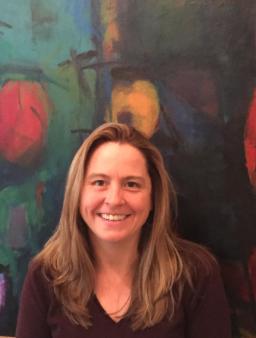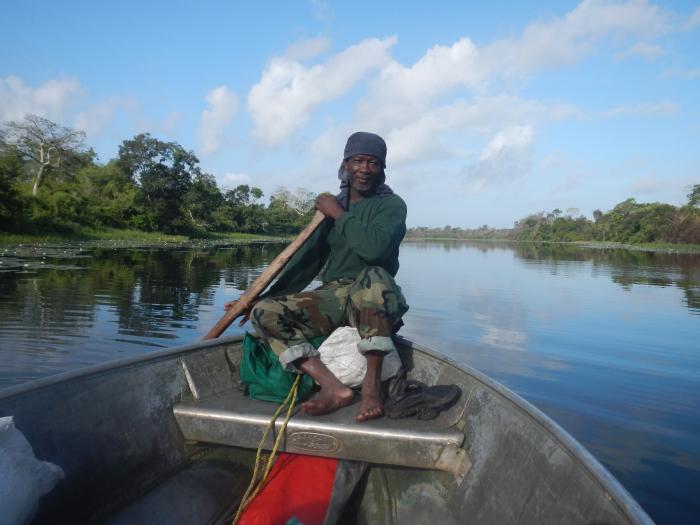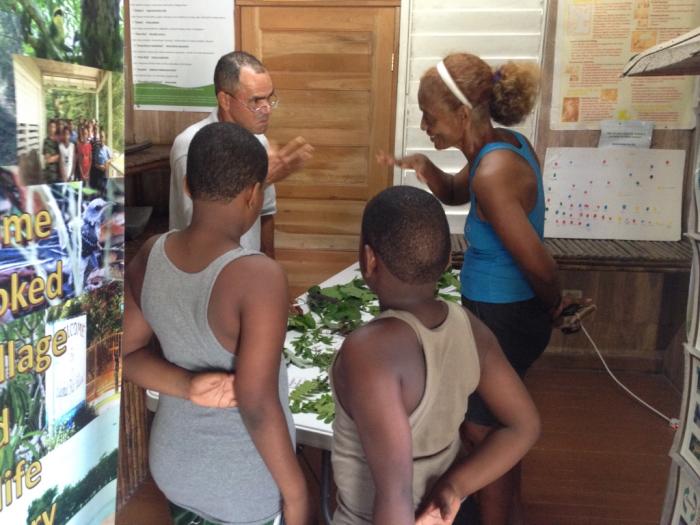
More than a third of the population of Belize is part of the Kriol (Creole) community, who are descended from enslaved Africans brought to the country by Europeans in the 18th and 19th centuries. The legacy of British colonialism in Belize is strong: national school curricula, the offerings at the national museum, and the booming tourism market all tend to focus on the ancient Maya and colonial periods, with little emphasis on the rich history and culture of the Kriol.
Eleanor Harrison-Buck will use the Fellowship to establish a new Kriol public history museum, working in collaboration with Kriol community leaders, educators, and local and regional authorities. For over 25 years, Harrison-Buck has conducted archaeological research in Belize. Through the course of her work in the lower Belize River valley, she has cultivated deep connections with her local collaborators in this project. Her work will build on her prior research in this area, which includes a temporary exhibit on Kriol culture that she helped develop with collaborators last summer in Crooked Tree village—one of the oldest Kriol communities in Belize. Working with community partners, she will now spearhead the design of a permanent exhibition that will incorporate local oral histories, historic artifacts, images, and stories to present this culture to tourists, teachers, and students. As the first of its kind, the new museum, housed in a building donated by the town of Crooked Tree, will also be a vital meeting point for the Kriol community who are committed to supporting and sustaining it.
Eleanor Harrison-Buck is an associate professor in the Department of Anthropology at the University of New Hampshire. She earned a B.S. from Skidmore College in Studio Art with a minor in Art History and received her M.A. and Ph.D. in Archaeological Studies from Boston University. Her research focuses on the Classic Maya “collapse” period and subsequent Spanish and British colonial periods in Belize, Central America. Since 2009 she has directed the Belize River East Archaeology (BREA) project, examining the deep history of the eastern Belize Watershed from Preclassic to Colonial times. Through these explorations she has uncovered not only a wealth of ancient Maya sites, but also a rich history of Kriol (Creole) culture and heritage in the lower Belize Valley that remains preserved through local oral histories, archival data, and archaeological remains. Her past and present field work has been generously funded by the Alphawood Foundation of Chicago with additional contributions from the University of New Hampshire, including the UNH Center for the Humanities.
In addition to numerous articles, her publications include the edited volume Power and Identity in Archaeological Theory and Practice: Case Studies from Ancient Mesoamerica (University of Utah Press, 2012) and her forthcoming edited volume (with Julia Hendon) Relational Identities and Other-than-Human Agency in Archaeology to be published by the University Press of Colorado. In addition, her curatorial experience includes work with the Florida Museum of Natural History, the Boston Museum of Fine Arts, the Robert S. Peabody Museum of Archaeology, and the Museum of World Religions Foundation in Taiwan.
Project: A Kriol Public History Museum in Belize

